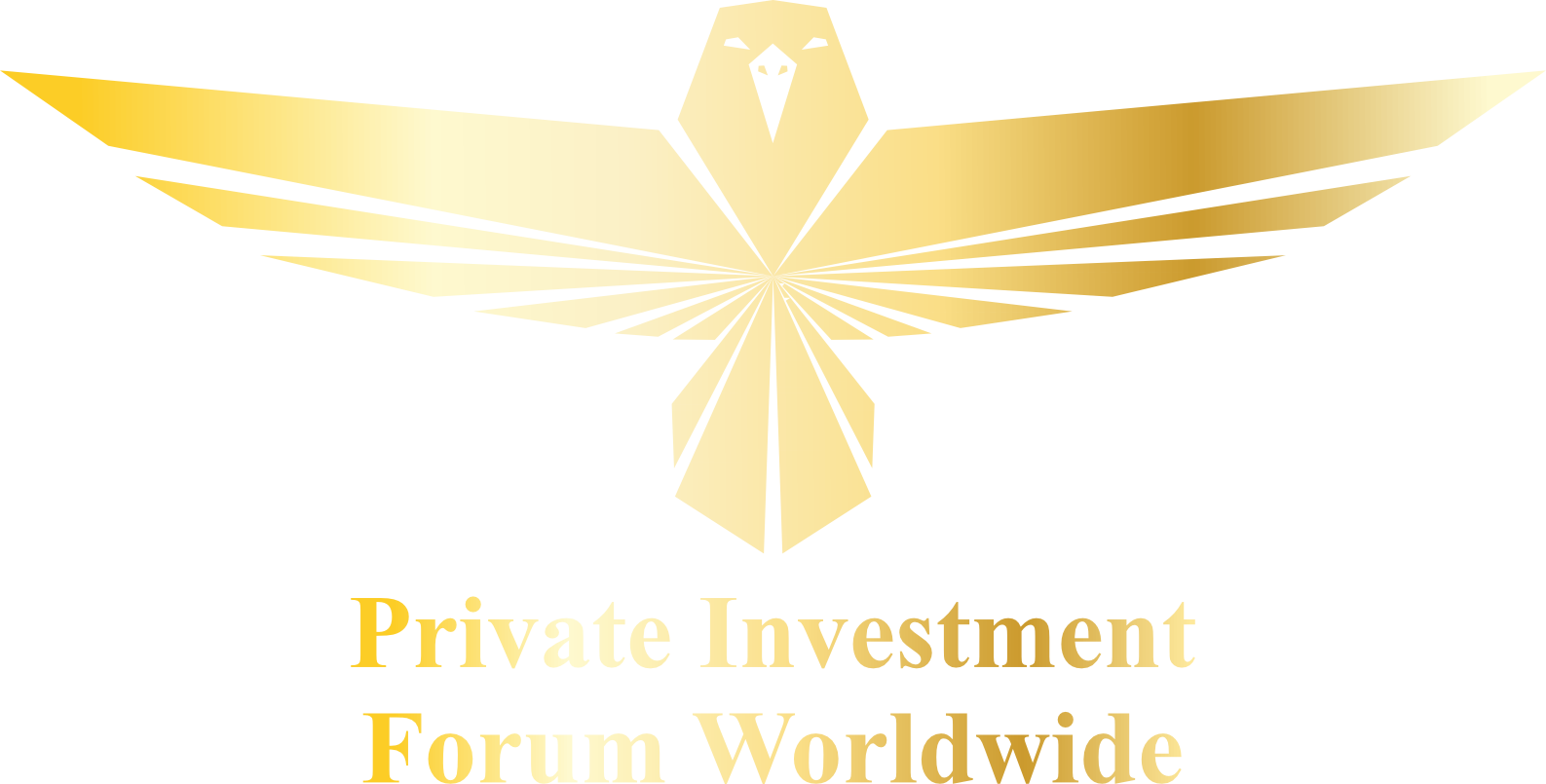
Executive Summary:
Effective fundraising in today’s landscape goes beyond merely accumulating funds; it’s fundamentally about forging strong, multifaceted relationships with investors. Recognizing the true value of an investor extends beyond their financial input to include their expertise, networks, and active involvement in your fund’s growth. This article delves into the various dimensions of investor engagement and provides actionable strategies to maximize their contribution to your fundraising efforts.
Engage Investors in More Complex Roles in Fundraising: Discusses the importance of actively engaging investors, leveraging not only their capital, expertise and networks to transform passive financial support into dynamic partnerships. Read more.
Know Your Investors Well Before Approaching Them: Highlights the necessity of conducting strategic research to identify investors who offer more than just financial resources, emphasizing the importance of diversity and thorough due diligence. Read more.
Financial Honesty is Always the Best Policy: Stresses the need for transparent and realistic financial projections to establish trust with investors, as supported by insights from the Journal of Business Ethics and the Club’s investors. Read more.
Understanding The True Nature of Investors and Networking: Focuses on the significance of expanding and strategically communicating within a professional network, enhancing the potential for effective investor activation and engagement. Read more.
Securing Long-Term Investors’ Support With Follow-Up Strategies: Addresses the importance of proactive follow-up with investors using consistent communication to align them with your business’s progress and secure their long-term support. Read more.
Article:
Introduction
Networking is a vital skill in the fundraising landscape, acting as a key catalyst that can significantly enhance fundraising outcomes. In the Club, we have seen what miracles can be achieved when paying attention to building relationships and knowing how to use it right. A Harvard Business Review study highlights the profound impact of effective networking, indicating a potential 40% increase in fundraising success. Forbes echoes this, emphasizing that over 80% of investors view professional networks as a crucial factor in their investment decisions. But it is not the number of contacts that makes the difference, but the quality and depth of these relationships.

“Through the Global Investment Leaders Club, I’ve connected with intriguing global leaders, many skilled in areas unfamiliar to me, enriching my experience with valuable learning.”
– Lisa Morris, Director of Philanthropic Services at FORCE Family Office, US
1- Engage Investors in More Complex Roles in Fundraising
There are two types of investors: hands-on and hands-off. In the realm of fundraising, the true value of hands-on investors goes beyond their financial input. The most effective investors are those who offer a composite package of capital, expertise and an expansive network. To truly leverage these assets, founders need to recognize their role in actively engaging and extracting value from their investor relationships. Founders’ proactive approach can transform passive financial contributions into dynamic, multifaceted partnerships achieving what is termed ‘ eigenvector centrality’.
* Eigenvector centrality defines a node’s importance based on the function of its neighboring nodes. In our case, a node is an investor that you can add to your network. Let’s call him Oswald. Examine all the people Oswald is connected to. If Oswald is linked to highly important decision-makers from various industries, investment leaders, officials, entrepreneurs, heads of venture capital (VC), single-family offices (SFOs), influencers, etc., he has a high eigenvector centrality score. And that is what makes Oswald an important part of the whole network. Relationships with high-scoring ‘Oswalds’ will bring more contribution to you than connections to people with low eigenvector centrality scores.
Investors at high-caliber investment gatherings are all well connected and have valuable networks. So, when meeting them focus on the quality and diversity of connections rather than sheer quantity or immediate financial gain. As per the National Venture Capital Association, investors with robust networks are key in unlocking further rounds of funding and connecting funds with potential co-investors and other useful connections. Moreover, investors like to help! It might surprise you, but being helpful is a big part of their job. Focused approach in asking them for help will not only enhance the capital pool but will also open up new avenues and strategic development.
Reinforcing this proactive mindset, a speaker at Private Investment Forum Worldwide, Ricky Tejapaibul, CEO at Tech Wildcatters, US, advocates for seeking investors who are not just financial contributors but active participants in your fund’s growth trajectory. “In fundraising,” he says, “look for partners who bring more than money to the table. Seek those who can guide, mentor, and connect, thereby enriching your fund’s journey beyond mere capital.”
* How To Implement It: All active investors are potential ‘Oswalds’ who can help you with what you need and provide useful connections if you see value in building relationships with them. In order to increase the likelihood of a positive response, send targeted, clear, and relevant requests to investors. Ensure your requests are directed to the right individuals, are concise, require minimal effort ( 2-3 minutes), and are specific in scope. Encourage their active involvement in decision-making processes, leveraging their wealth of experience .To further enhance your fundraising efforts and success, we invite you to explore our range of fundraising resources.

“Being part of the Club has been a tremendous experience, offering opportunities to meet and interact with fascinating investors and industry leaders. It’s been instrumental in my growth and expanding my international network, connecting me with potential future collaborators.“
– Guneet Banga, Executive Director at The Caravel Group Limited, Hong Kong
2 – Know Your Investors Well Before Approaching Them
The journey to finding the right investors for your business is more than just locating high-net-worth individuals (HNWIs) with a financial capacity to invest. It’s crucial to understand their investment styles, interests, track records and portfolio preferences, as well as what motivates them to invest. Investors highly value their time, it is something that they value as much as they value money. Approaching them without adequate knowledge can be seen as disrespectful, as a waste of their time thus greatly reducing the chances of a successful interaction.
John Rose, Chairman of Rose Marketing Ltd, UAE, highlighted the importance of alignment in investor interests during a discussion at a recent Global Investment Leaders Club gathering. He emphasized the need for thorough research to identify investors whose profiles align with your venture, whether in terms of investment amount, phase, or industry. Such detailed research enables a more efficient and effective engagement with potential investors.
The Financial Times underscores the importance of comprehensive due diligence in the investor selection process. Utilize a variety of tools such as online databases, industry reports, and professional networking events to gather in-depth information. In addition to their financial health and reputation check their alignment with your business goals and culture. Such in-depth research ensures that, when you connect with investors, you are prepared and can direct their attention to how your business objectives align. And remember, while it’s advisable to know a lot about them, avoid the mistake of oversharing about yourself. They don’t need to know your medical history, family troubles, or retirement plans — it’s distasteful. Instead, use your knowledge to show them that you understand and value what they do, bringing attention to how investing in your project can contribute to mutual success.
John Rose further reinforces this strategy. He advised tailoring your research to find investors who are not just financially capable but genuinely interested in your business’s vision and journey. He points out the need for a focused and meticulous approach in investor research, ensuring that each potential investor aligns not just financially but also in terms of shared goals, values, and the diversity they bring to your network.
* How To Implement It: Find a place to connect with investors who are not only financially capable but also share a commitment to your business’s long-term goals and values. Pay particular attention to the investment patterns and interests of these investors. Be respectful and humble when establishing and nurturing deep, personal relationships with investors. Prioritize regular and meaningful communication over quick business cards exchange or one-time presentation of your project. And do not let them forget about you! Find a way to constantly be in an investors community and share your company’s progress, challenges, and successes. At the Club, we provide this valuable opportunity to business founders.

“Through GILC, I’ve made great friends, and it’s far more than just another online meeting. This exclusive assembly of investors and industry leaders is meticulously curated.“
– Joshua McClure, CEO at Maxwell Biosciences, US
3 – Financial Honesty is Always the Best Policy
Know your numbers well and tell the truth. As much as some founders would like to believe that exaggerating profit projections or diminishing potential expenditures will help them – in reality it never does. In discussions with potential investors, presenting transparent and realistic financial projections is of huge value. Same goes for setting clear expectations with investors about their involvement and potential contributions is critical. This not only includes financial commitments but also the strategic and advisory roles they might play.
As Kevin O’Leary, a renowned US investor and Shark Tank presenter, often emphasizes, “’In seeking investment, entrepreneurs must thoroughly understand their financials, from gross margins to market share requirements”. Clear and detailed knowledge of these figures is vital for gaining investor trust. A lack of financial clarity can quickly deter potential backers. It’s essential to convey not just the vision, but also a deep, transparent understanding of the business’s financial aspects.
The Journal of Business Ethics supports this view, stressing the importance of financial transparency for fostering investor trust. Accurate and honest financial forecasts show a deep understanding of the business’s market potential and a commitment to integrity. Conversely, the Harvard Business Review warns against excessive optimism in financial projections, emphasizing the need for realism and honesty in financial forecasting.
Jon Bennion Pedley, CEO at Investment Owl, Uganda, reinforces this viewpoint. Speaking at an investment-focused Global Investment Leaders Club gathering, he advised, “For those seeking funding, it’s crucial to maintain clarity and set realistic financial expectations right from the start.” He also suggests the importance of establishing a mutual understanding of the roles and contributions expected from each investor, fostering a foundation of trust and mutual respect.
* How To Implement It: Remember, a great idea doesn’t automatically mean a great business. A solid business stands on realistic financial projections, thorough market research, and detailed financial analysis. Be as familiar with your numbers as you are with your own name, contact details, and the current year. If you are a visionary type and number-crunching isn’t your forte, team up with someone who excels in it and talk to investors together. It’s crucial to explain all the assumptions and variables in your plan and be prepared to discuss why you’ve chosen these numbers. This showcases your thorough understanding of the market and your business plan. Adopting this honest approach not only maintains your integrity as a business leader but also sets the foundation for relationships built on trust and mutual respect.

“My time with the GILC has been outstanding, joining this Club three years ago was a decision I’m truly happy about. The main draw was the opportunity to meet many high-profile individuals in a safe, welcoming environment, expanding my international network and exposing me to new deals and technologies.“
– Jon Bennion-Pedley, CEO at Investment Owl, Uganda
4 – Understanding True Nature of Investors and Networking
The ability to expand and nurture your professional network is integral to successful fundraising. It involves not just expanding your circle of connections but also establishing frequent and strategic communication with investors in your network. To make it work you need to have a place where you can meet potential investors in a friendly and accommodating environment, so you can engage directly with decision-makers, tell them about yourself and gain a deeper understanding of their interests and investment strategies. Forbes underscores the value of attending networking events and industry-specific conferences or, ideally, joining an investors club, as strategic methods to meet potential investors. In the Global Investment Leaders Club we conduct regular gatherings for investors and entrepreneurs that offer face-to-face interactions, ensuring that each interaction is enhancing your network, is purposeful and likely to yield positive outcomes.
Additionally, the Academy of Management Journal highlights the importance of a diverse professional network. Do not limit yourself to talking with investors and people only from your industry. Remember, each investor is fundamentally an entrepreneur, typically engaged with multiple companies across various industries. You should understand that being an investor in the private market is different from being an investor on Wall Street. All HNWIs have successfully established businesses and use the capital earned from these to invest elsewhere. Over the years, they have built a vast network of connections with other investors, experts, marketing geniuses, and other influential decision-makers. Overlooking their entrepreneurial aspect can lead to confusion and a superficial approach.
* A Case Story: This mistake, common among some entrepreneurs, is well illustrated by a story from our club. A US-based project owner from the gaming industry gave a presentation at one of the investment gatherings. His promising project garnered significant interest from investors, leading to one-on-one meetings. Surprisingly, his comment after the meetings was: “I don’t see how it was helpful. Apart from tech investors, I met a florist and a gold mine owner…”
By not understanding how to leverage an investment network, he missed a great chance of developing his project to fruition. In reality, the ‘florist’ was a wealthy US investor with a large family-owned flower company, exploring innovative projects to invest in using profits from his floral and other ventures. The ‘gold mine owner’ was a woman managing her family office with a focus on bullion and real estate investments. Although the gaming project wasn’t her direct focus, she was keen to introduce its owner to investors who she thought would find it appealing. So, all ‘unhelpful’ investors had networks that spanned various industries and sectors were optimized for eigenvector centrality, and would enhance the scope and effectiveness of their fundraising efforts.
* How To Implement It: Successful fundraising is all about growing and nurturing your professional network through smart, strategic communication with investors. The key is to find welcoming places like networking events or investors’ clubs, where you can comfortably meet and talk with decision-makers. Remember, every investor has a unique background and a network that could open up new opportunities across different sectors. It’s important not to overlook the diverse nature of investors. This is where a secure investors community like the Global Investment Leaders Club can make a big difference. It’s a vibrant and engaging place that connects you with a wide range of investors, fostering long-term, meaningful relationships. Being part of such a dynamic club not only expands your network but also significantly boosts your fundraising efforts, giving you access to a world of possibilities and connections.

“I’ve been privileged to be part of the Global Investment Leaders Club for about three years, and it’s been an enriching journey. Among various platforms I’ve engaged with, this Club is a standout due to its unique and welcoming atmosphere. What sets it apart is the deep trust and camaraderie among members.“
– Ambuj Mathur, Managing Partner at Indite Ventures LLP, India
5 – Securing Long-Term Investors’ Support With Follow-Up Strategies
There are numerous cases when investors are surprised by the lack of follow up from the founders. Always keep in mind that a follow-up is your initiative not investors’. They will appreciate your timely and professional follow-ups. But, astonishingly, there are even cases when founders neglect to respond to a follow-up from an investor, being burdened with disorganized engagements in conversations with other potential investors. Prioritize those investors who you have already engaged in positive relationships over cultivating new ones.
When discussing follow-ups, Ricky Tejapaibul, CEO at Tech Wildcatters, US, noted during a recent GILC gathering: “Successful investor engagement hinges on timely and respectful follow-ups. Initial contact should be informative, but it’s the follow-up, ideally every week or two, that truly stands out. Strive for genuine, long-term oriented interactions, rather than transactional ones. This approach not only captures attention but also builds trust, elevating your venture on an investor’s potential list.”
The National Venture Capital Association underscores the impact of regular investor engagement. Utilizing a strategy of clear, targeted, and time-bounded communication enhances the effectiveness of these interactions. Businesses that maintain consistent communication with their investors are more likely to achieve long-term success.
Jude Pereira, MD at Nanjgel Solutions, UK, reinforces the importance of dialogue, stating at a Global Investment Leaders Club gathering, “The key to building strong investor relationships lies in early and regular conversations.” He emphasizes the value of making specific and strategic requests, fostering an environment where both parties feel engaged and valued. This approach underscores the need for open, consistent communication as the cornerstone of cultivating and sustaining investor relationships.
* How To Implement It: Effective fundraising requires more than just aiming at securing initial funds; it involves ongoing, meaningful engagement with both potential and current investors. Establish a rhythm of timely and respectful follow-ups, ideally every week or two, to keep investors in the loop about your business’s progress. This approach should be about building genuine, long-term relationships rather than just transactional exchanges. Prioritize nurturing your existing investor relationships, as they are often your most valuable assets. Create an environment where investors are not just financially involved but are also actively engaged and valued partners in your business’s journey.

“The GILC excels in bringing individuals together and fostering lasting investor connections. As a long-term member, I’ve enjoyed their weekly gatherings, finding them informative and engaging. The content is consistently intriguing, and the investment opportunities discussed are exceptional.“
– Jawad Wehbi, Founder & CEO of AJ Middle East Management Consulting, UAE
Conclusion
Successful fundraising transcends just securing funds; it’s about deep understanding, strategic networking, and fostering lasting investor relationships. These elements collectively form the cornerstone of not only achieving your fundraising goals but also ensuring long-term success and growth. To delve deeper into the art of fundraising and to present your project to a community of esteemed investment leaders, don’t miss the opportunity to register for our next event.











